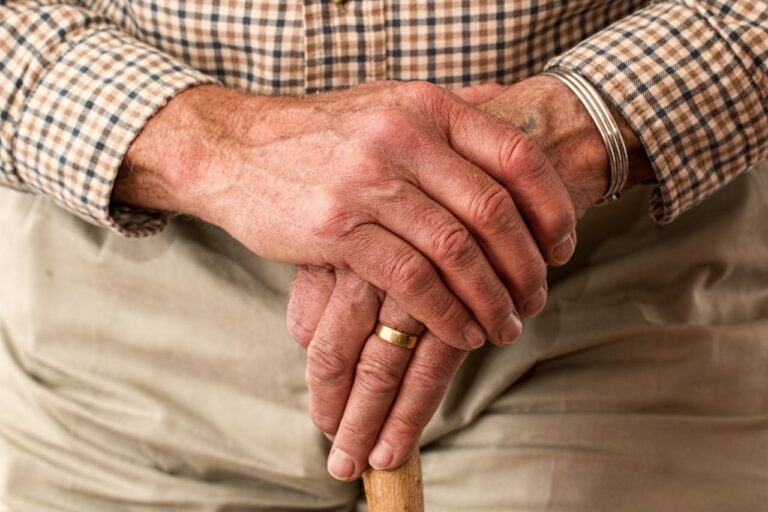
Shielding Your Golden Years: Skin Cancer Prevention for Seniors
As we age, our skin undergoes significant changes, becoming more susceptible to various health conditions, including skin cancer. With the increasing prevalence of this disease among older adults, it’s crucial to understand how to protect ourselves and our loved ones. This blog post aims to provide seniors, caregivers, and dermatologists with essential tips and insights to prevent skin cancer effectively. By the end of this read, you’ll know how to incorporate sun protection into daily routines, recognize early signs of skin issues, and seek professional advice for maintaining healthy skin.
Understanding Skin Cancer in Seniors
Skin cancer is the most common type of cancer in the United States, and its risk increases with age. Seniors are particularly vulnerable due to the cumulative exposure to UV radiation over their lifetime. There are three primary types of skin cancer that affect older adults more frequently:
- Basal Cell Carcinoma (BCC): This is the most common and least aggressive form of skin cancer. It typically appears as a shiny bump or a reddish patch, mainly in areas exposed to the sun.
- Squamous Cell Carcinoma (SCC): More aggressive than BCC, SCC usually manifests as a scaly, reddish patch or a sore that doesn’t heal. It’s often found on sun-exposed areas such as the face, ears, and hands.
- Melanoma: Although less common, melanoma is the most dangerous form of skin cancer. It can develop from existing moles or appear as new, unusual growths.
Several risk factors contribute to the higher incidence of skin cancer in seniors, including prolonged sun exposure, weakened immune systems, and a history of sunburns. Additionally, aging skin is less capable of repairing DNA damage caused by UV radiation, increasing the likelihood of cancerous growths.
Sun Protection for Seniors
Sun protection is the first line of defense against skin cancer, and it’s never too late to start. Daily sun protection can significantly reduce the risk of developing skin cancer, even for those who have had considerable sun exposure in the past.
Importance of Daily Sun Protection
Wearing protective clothing, such as long-sleeved shirts, wide-brimmed hats, and sunglasses, can shield your skin from harmful UV rays. These simple practices can make a significant difference in protecting your skin, especially during peak sun hours.
Choosing the Right Sunscreen
Sunscreen is an essential tool in your sun protection arsenal. Here are some tips for selecting the best sunscreen for seniors:
- Broad-Spectrum Protection: Ensure the sunscreen offers protection against both UVA and UVB rays.
- SPF 30 or Higher: A higher SPF provides more protection against sunburn and long-term skin damage.
- Water-Resistant: Opt for water-resistant sunscreen if you plan to swim or sweat.
Apply sunscreen generously to all exposed skin at least 15 minutes before going outside, and reapply every two hours or immediately after swimming or sweating.
Skin Cancer Screening and Early Detection
Keeping cool is the first line of defense against heat-related emergencies. Ensure that the indoor temperature is comfortable in warm weather, and if going outside is necessary, plan activities for the cooler parts of the day. Use fans and air conditioning, if available, and create a cool personal space that’s well-ventilated.
The Role of Regular Skin Checks
Seniors should perform monthly self-examinations and schedule annual skin checks with a dermatologist. During self-examinations, look for any new or changing moles, spots, or growths. Use a mirror or ask for assistance to inspect hard-to-see areas like the back and scalp.
How to Conduct a Self-Check
To conduct an effective self-check, follow these steps:
- Examine Your Body: Stand in front of a full-length mirror and check your entire body, including the front, back, sides, and underarms.
- Use a Hand Mirror: Inspect areas that are difficult to see, such as your back, scalp, and the soles of your feet.
- Look for Changes: Note any new or changing moles, sores that don’t heal, or unusual growths. Pay attention to asymmetry, irregular borders, multiple colors, or diameter larger than a pencil eraser.
If you notice anything suspicious, contact your dermatologist immediately for a professional evaluation.
Lifestyle Changes for Skin Cancer Prevention
Incorporating skin cancer prevention into your daily routine can significantly reduce your risk. Here are some practical tips for maintaining healthy skin:
Seek Shade
Avoid direct sun exposure during peak hours (10 a.m. to 4 p.m.) when UV rays are the strongest. Seek shade under trees, umbrellas, or other structures when outdoors.
Wear Protective Clothing
Choose clothing that covers your skin, such as long-sleeved shirts, pants, and wide-brimmed hats. Lightweight, tightly woven fabrics offer the best protection while keeping you cool.
The Importance of Professional Advice
While self-care and prevention are essential, consulting with a dermatologist provides personalized insights and professional guidance tailored to your skin’s needs.
Regular Dermatologist Visits
Schedule regular appointments with your dermatologist to monitor your skin’s health. Dermatologists can perform thorough skin examinations, identify potential issues early, and recommend appropriate treatments or preventive measures.
Personalized Skin Health Advice
Your dermatologist can provide tailored advice based on your skin type, medical history, and lifestyle factors. This personalized approach ensures you receive the most effective care and recommendations for maintaining healthy skin.
Conclusion
Protecting your skin from cancer is a crucial aspect of maintaining overall health, especially for seniors. By understanding the risks, adopting daily sun protection habits, conducting regular skin checks, and seeking professional advice, you can significantly reduce your risk of skin cancer.
Taking proactive steps today not only safeguards your health but also empowers you to enjoy your golden years to the fullest. For more information on skin cancer prevention and to book a consultation with one of our dermatologists, visit our website. Together, we can ensure your skin stays healthy and radiant for years to come.